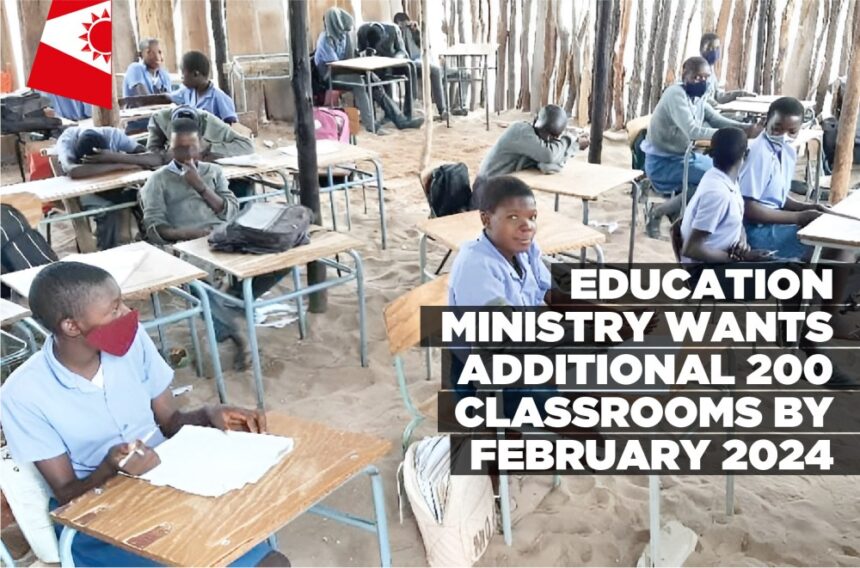Staff Reporter
ANNA Nghipondoka, Minister of Education, Arts & Culture, has said that the education ministry will approach the treasury to allocate further funding for the school infrastructure programme, enabling the ministry to build an additional 200 classrooms by February 2024. This comes after the ministry announced the completion of 500 classrooms by August 26 Construction. Nghipondoka said that since 2021, the education ministry has had a backlog of 4,000 classrooms that are required.
“The quality of education should be improved. We do not want overcrowded classrooms, and we do not want a child taught under a tent. Since 2022, we have implemented an accelerated infrastructure development plan. Since 2021, the backlog was up to 4,000 classrooms. This is what we want to tackle head-on,” Nghipondoka said. She added that the Ministry secured N$ 255 million to construct 510 classrooms and 70 ablution blocks through August 26 Construction within a period of 4 months this year, which has been completed. She added that the ministry wishes to build an additional 200 classrooms and seeks funding from the finance ministry to reach the short-term target of 1,200.
“What is worrisome is that regions have classroom needs, and we have learners being taught in tents and other makeshift structures, but when projects are allocated to regions, there are always delays and bureaucracy from some of our Regional Councils and own officials in getting these projects off the ground. A case in point is that some regions still haven’t completed the COVID-19 projects, something which is worrisome and should not continue,” Nghipondoka said. She explained that as a result of an acute shortage of classrooms, children of pre-primary school age do not go to school and only join school at Grade 1 level.
“This lack of foundation formation results in children lagging behind in terms of numeracy and cognitive skills acquisition, which might affect their entire school career,” Nghipondoka warned.



Leave a Reply